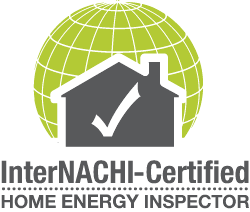An impartial home inspection is essential when buying a Detroit house. The foundation, structure, roofing, plumbing, electrical, and HVAC systems are inspected. To help purchasers make an informed decision, detect hidden issues. This blog post will provide insights on what to expect during a home inspection and which areas to focus on when evaluating a potential investment property.
Exterior components
The house’s exterior is a crucial region that shouldn’t be ignored. It’s crucial to thoroughly evaluate these components since they can significantly affect the stability and longevity of the structure.
The exterior of a house comprises various critical elements such as the roof, gutters, siding, windows, doors, and foundation, which collaborate to safeguard the building from natural calamities and keep it dry. As a result, it is crucial to examine each component to spot any potential problems carefully.
As a reputable house inspector in Detroit, MI, it’s crucial to thoroughly examine the roof for any indications of deterioration like broken or missing shingles, cracked flashing, or water damage. Additionally, it’s essential to inspect the gutters to ensure they’re clear of debris and appropriately connected to the property.
Inspect the siding, windows, and doors for any damage indications, such as cracks or holes that can let water or pests into the house. Inspecting the home’s foundation for cracks or signs of settling could reveal potential structural problems.
Foundation and structure
The foundation and structural elements of the property are among the most significant aspects to look at during a home inspection. It is crucial to thoroughly inspect the components that provide the foundation’s stability and support. These parts provide structural safety. These parts can compromise home safety, so they must be checked during a home inspection.
A home’s foundation is the framework for the entire building, and any damage or deterioration can cause serious structural issues. During a home inspection, the foundation should be inspected for any cracks, settlement, or signs of moisture damage, such as mold or mildew. To ensure that water is correctly directed away from the house, inspecting the grading around the foundation is also crucial.
It is important to carefully inspect the walls, beams, and columns of the building for any evidence of degradation or damage. This could include cracks, bowing, decay, or insect damage signs. The inspector should also look for unauthorized structural modifications, which could endanger its integrity and safety.
In addition, the roof and attic of the home should undergo inspection for any indications of structural issues. The inspector should inspect the attic for sufficient insulation and ventilation, and the roof should be inspected for any drooping, cracked shingles, or indications of water damage.
Electrical systems
It’s essential to assess every part of the property while performing a home inspection to find any potential problems that require attention. You shall examine the electrical system because it might present a serious safety risk if it isn’t operating correctly.
The main service panel, wiring, switches, outlets, and lighting fixtures are some of the several components that comprise the electrical system. The condition of the service panel should be examined first, along with its installation and functionality, by the inspector. They should also verify whether the panel’s amperage is enough for the size of the house and look for any indications of overheating or wiring damage.
After checking the service panel, the inspector should check the wiring throughout the entire house. Inspecting the wiring for any signs of damage, such as frayed or exposed wires, and noting its age and type is essential because older systems might not adhere to modern safety standards. The inspector should also ensure that every circuit is labeled correctly and grounded.
Also, switches and outlets should undergo inspection. The inspector should make sure they are grounded and working correctly. They should also check for any damage, such as cracks or loose connections, and ensure there are enough outlets for the needs of the residents throughout the entire property.
HVAC systems
Homes in Detroit need to have their HVAC systems thoroughly inspected. For the sake of everyone’s comfort, this system must operate as intended. Remember to give it the focus it needs.
During a home inspection, looking at the equipment’s condition to analyze the HVAC systems thoroughly is important. You must consider the lifespan of the heating system, the air conditioner, and other major appliances such as the furnace, air conditioner, and other HVAC components. Moreover, identify and address corrosion, rust, and cracks during the inspection process.
Duct condition is particularly important to consider because duct leaks can lead to significant energy loss, higher energy costs, and decreased comfort. Duct leaks and damage should be among the top concerns during a checkup.
It’s also essential to inspect the filters, which should be spotless and debris-free. Failure to clean or replace HVAC system filters will lead to poor air quality in enclosed spaces.
It is imperative to ascertain the comfort levels of temperature and humidity during inspection to evaluate the efficiency of the heating, ventilation, and air conditioning systems. If your inspector finds any fundamental problems, you should fix them immediately to limit further harm and ensure the system’s durability.
Take action today and experience the peace of mind that comes with having your loved ones protected. Contact Blessed Assurance now to schedule a consultation with one of our experienced agents. Prioritize your loved ones’ well-being, and don’t wait. Contact us for help finding reasonable, adequate life insurance. Act now and ensure their future with Blessed Assurance.









